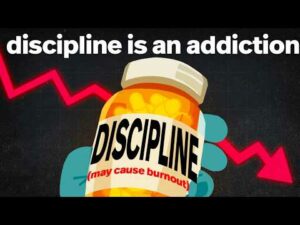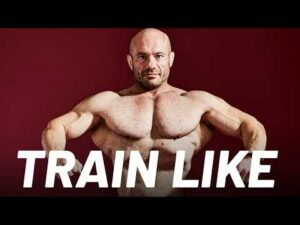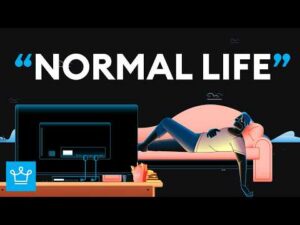Unlock the Future of Men’s Health: Revolutionary Tech Over 40 That Could Change Your Life Forever!
Ever noticed how turning forty can feel less like a milestone and more like a mysterious “change of life” no one warned you about? Well, buckle up—because male menopause, also called andropause or manopause, isn’t just about a few gray hairs or dad jokes getting lamer. It’s a full-on revolution happening inside every man’s body somewhere between the ages of thirty-five and sixty-five, shaking up hormones, mood, energy, and even the way you see yourself. Having immersed myself in men’s health since 1969 and penned the game-changing bestseller Male Menopause, I’ve witnessed firsthand how this phase can either derail a man or launch him into the most powerful chapter of his life. But here’s the kicker: while testosterone replacement therapy has been the go-to, a new player is entering the arena, promising to reset the body’s own engine without synthetic hormones. Intrigued? You should be—because this could redefine what midlife looks like for millions guys out there. Dive in and discover the trailblazing way men are tackling low T with science, heart, and a vision for real, lasting change. LEARN MORE

I have been working in the men’s health field since 1969. My work expanded greatly in 1997 following the publication of my fourth book, Male Menopause, which soon became an international best-seller translated into seventeen foreign languages. In the book I defined the male “change of life” this way:
“Male menopause (also called andropause or manopause) begins with hormonal, physiological, and chemical changes that occur in all men generally between the ages of forty and fifty-five, though it can occur as early as thirty-five or as late as sixty-five. These changes affect all aspects of a man’s life. Male menopause is, thus, a physical condition with psychological, interpersonal, social, and spiritual dimensions.”
I went on to say,
“The purpose of male menopause is to signal the end of the first part of a man’s life and prepare him for the second half. Male menopause is not the beginning of the end, as many fear, but the end of the beginning. It is the passage to the most passionate, powerful, productive, and purposeful time of a man’s life.”
I listed the following symptoms I had seen over the years with clients I treated. The most common physical symptoms include:
- Less endurance for physical activity
- Taking longer to recover from injuries and illness
- Weight gain
- Loss of skin tone
Common psychological symptoms include:
- Irritability
- Anxiety
- Depression
- Loss of purpose and direction in life
Common sexual symptoms include:
- Loss of erections
- Low libido and interest in sex
- Increased anxiety and fear about sexual changes
- Increased fantasies about having sex outside of primary relationship
I discussed the impact of hormonal changes for men going through this life passage.
“Lowered levels of hormones at midlife are central to the changes associated with male menopause. Although hormones tend to decrease with age, each man is unique and individual levels vary widely. In one study, for instance, the average level of testosterone for men in their fifties was 600 ng/ mL. However, individual levels ranged from 200 ng/ mLl to 1,000 ng/ mL.”
I also detailed the early experiences with testosterone replacement therapies (TRT) and some of the concerns about its use.
“While clinicians in the U.S. debated the risks and benefits of TRT, British physicians were already beginning to use hormones to treat men who showed symptoms of testosterone deficiency.”
Over the years, there continues to be controversy about the use of TRT in treating men. Nevertheless, testosterone continues to be prescribed widely for millions of men. I recently wrote about a new company, GameDay Men’s Health, that has been expanding rapidly with new clinics throughout the country. Says their founder, Evan Miller, PhD,
“By focusing all of our energy on delivering premium testosterone replacement therapy, removing the stigma around erectile dysfunction services and more, we ensure our clients’ experience is relaxing, fast, and most importantly, delivers results.”
Acesis BioMed: Revolutionizing Treatment of Low T and Other Health Problems
I recently learned about a new company, Acesis Biomed, that is taking a different approach to treating low testosterone in men. Acesis Biomed was founded by Dr. Vassilios Papadopoulos and Dr. Costas N. Karatzas.
Dr. Papadopoulos is Dean of the University of Southern California Alfred Mann School of Pharmacy & Pharmaceutical Sciences. He holds the John Stauffer Decanal Chair in Pharmaceutical Sciences and is a professor of Pharmacology and Pharmaceutical Sciences and Medicine at USC. Before joining USC, Dr Papadopoulos served as Executive Director and Chief Scientific Officer of the Research Institute of McGill University Health Centre in Montreal, Canada.
Dr. Karatzas is Acesis’ CEO and has over 35 years of experience in Life Sciences in the public, private and academic sectors. He attended McGill University, where he earned his Ph.D., in Molecular Biology. He has over fifty peer-reviewed publications and is an inventor with 18 patents. From 2009 to 2021 he was the Director of Business Development and Contracts Office at the Research Institute of the McGill University Health Centre, Montreal, Canada.
I recently had an opportunity to talk with Drs. Papadopoulos and Karatzas about their company and their new approach for helping men with low T. They told me,
“Millions of men suffer from low testosterone (T), leading to reduced quality of life. Acesis Biomed is pioneering a first-in-class, patented, oral treatment that restores the body’s natural T production — without synthetic hormones.”
From my experience working with mid-life men and their families for more than fifty years, I believe this is a monumental breakthrough in what will be offered to men. Up until now, men who were experiencing symptoms of low testosterone were limited to taking Testosterone Replacement Therapy (TRT). Now, for the first time, Acesis Biomed, is offering a treatment approach that helps men restore their testosterone levels through a potentially safer and more natural approach by inducing the testes to produce testosterone.
“Our vision is to unlock the body’s ability to restore testosterone, rather than using external steroids, setting a new approach for men’s wellbeing,” they told me.
They continue by stating:
“What if a pill could help millions of men feel like themselves again — without needles, patches, gels or synthetic hormones? At Acesis, we are on a mission to transform the way low-T or deficiency is treated.“
Dr. Karatzas stated that,
“Our unique solution is rooted in the science, developed by Dr. Papadopoulos. His research has led to a better understanding of the pathways leading to steroid hormone synthesis, the pharmacology of steroid formation in the periphery and brain, and the identification of new molecules targeting key elements in diseases where steroids play a determining role.”
They told me they want to be sure that when this new medication is available, it is safe and has undergone the necessary clinical trials and regulatory scrutiny.
“Our current goal is to complete our preclinical program and transition to First-in-Man clinical trial in men with low testosterone, also known as male hypogonadism.”
As a leader in the field of Gender-Specific Medicine and Men’s Health I am excited to continue learning more about the ground-breaking work that Drs. Papadopoulos and Karatzas are doing.
The field of Gender-Specific Medicine is relatively new. My colleague, Marianne J. Legato, MD founded the Foundation for Gender-Specific Medicine in 1999. In her book, Eve’s Rib: The New Science of Gender-Specific Medicine and How It Can Save Your Life, she says,
“Until now, we’ve acted as though men and women are essentially identical except for the differences in their reproductive function. In fact, information we’ve been gathering over the past ten years tells us that this is anything but true, and everywhere we look, the two sexes are startingly and unexpectedly different not only in their normal function but in the way they experience illness.”
Dr. Legato has told me on numerous occasions that there is a great need for new approaches to helping men. In her book, Why Men Die First: How to Lengthen Your Lifespan, she says,
“Despite the significant opportunities and advantages most societies afford men, they remain shockingly vulnerable on many levels. Researchers have largely ignored the phenomenon, with tragic consequences. Simply put, we never turned a gender-specific lens on men. We have not thought enough — if at all — about why they are uniquely prone to disability and premature death.”
It is time that men’s health got the recognition it deserves. I will keep my readers posted on these innovations and look forward to hearing more from Dr. Vassilios Papadopoulos and Dr. Costas N. Karatzas in the future. You can learn more about Acesis BioMed and their work to transform men’s health by visiting their website here. If you would like to subscribe to my free weekly newsletter and read articles about innovations in field, you can visit me at MenAlive.com and subscribe to the newsletter here.




















Post Comment